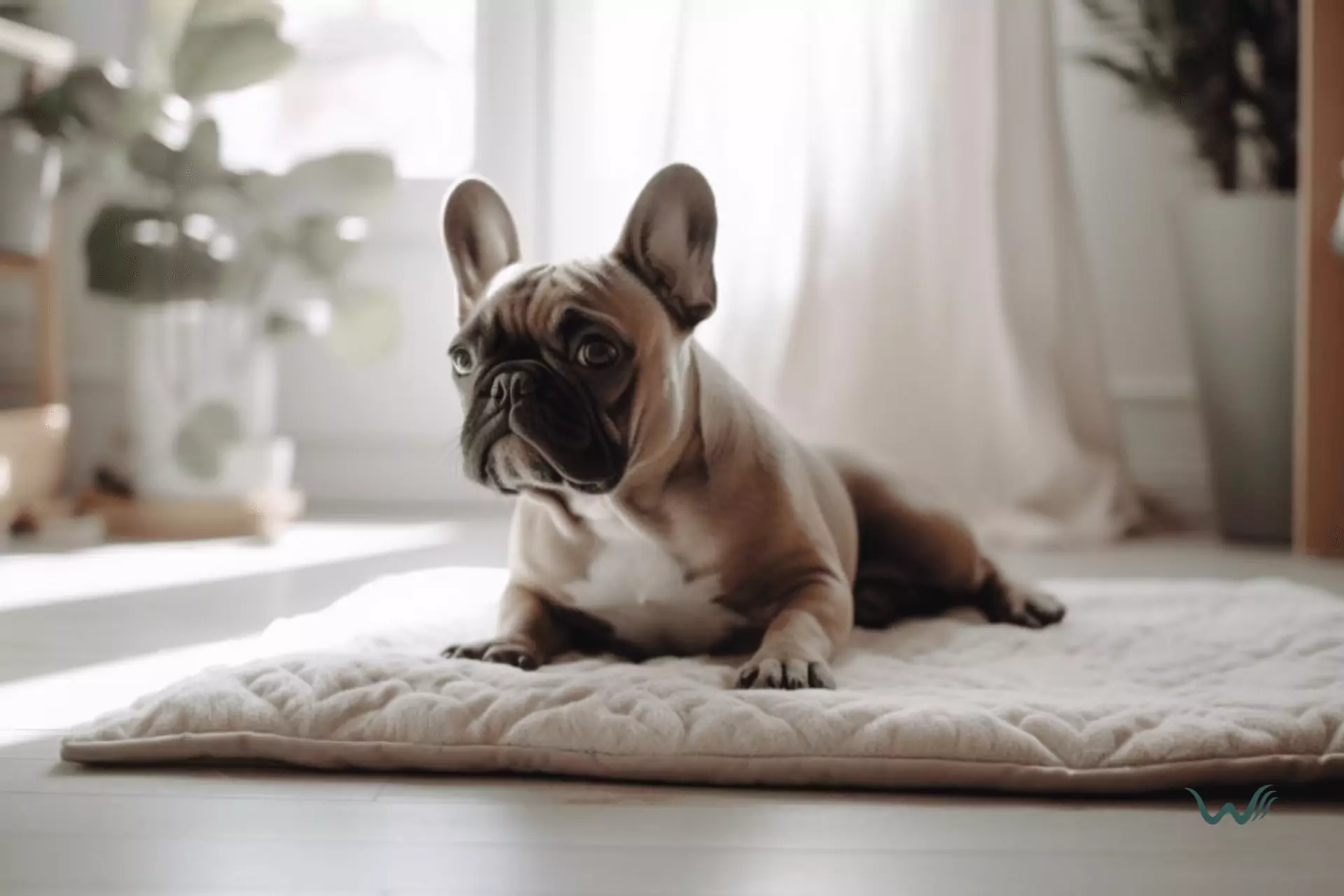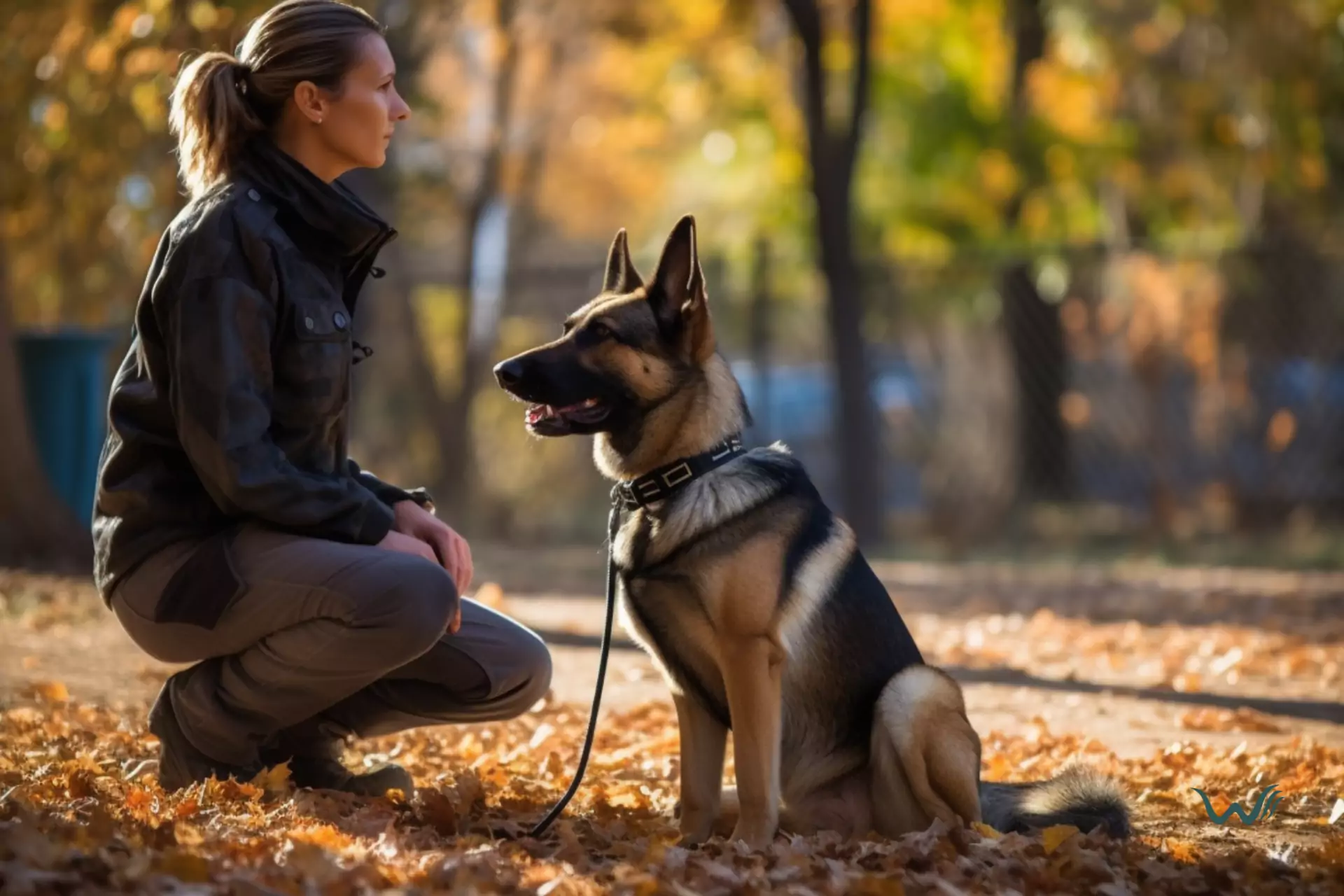

Finding Solutions To House Training Challenges For Puppies
by Tayyaba Amir
Last updated: April 23, 2024
Verified and Approved by:
Angela Morris,
MSW, LCSW
Fact Checked

Are you struggling with house-training your adorable new puppy? Don’t worry, you’re not alone! Many new puppy owners face challenges when it comes to teaching their furry friends where to do their business. But fear not, because, in this article, we’re going to help you find solutions to those house training challenges.
Understanding your puppy’s behavior and development is the first step in successfully house-training them. Puppies have small bladders and limited control over their bodily functions, so accidents are bound to happen. However, by learning about their development stages, you can set realistic expectations and adjust your training approach accordingly.
Additionally, establishing a consistent routine is important. Dogs thrive on routine, so make sure to feed them at the same time each day, take them out for walks regularly, and designate specific potty areas. With patience and persistence, you can create a routine that works for both you and your furry friend.
Key Takeaways
- Understanding puppy behavior and development is important for successful house training.
- Establishing a consistent routine is important for house training.
- Positive reinforcement training techniques can be effective in teaching puppies proper behavior.
- Seeking professional guidance and support can be beneficial for resolving house training challenges.
Understanding Puppy Behavior and Development
By understanding puppy behavior and development, you can effectively address house training challenges. For example, recognizing that puppies have a limited bladder capacity and need to eliminate frequently, you can establish a consistent schedule for bathroom breaks to prevent accidents inside the house.
Puppies have small bladders and may need to relieve themselves as often as every 30 minutes to an hour. By taking them outside regularly, especially after meals, naps, and playtime, you can help them develop a routine and avoid accidents indoors.
Additionally, it’s important to understand that puppies have an instinct to keep their living space clean. They will naturally try to avoid eliminating in their sleeping area. With this in mind, you can create a designated area for your puppy to use as their bathroom spot. This can be a specific spot in your yard or a designated area on a pee pad indoors. By consistently bringing your puppy to this spot when they need to go, you can reinforce the idea that this is the appropriate place to eliminate.
Understanding your puppy’s behavior and development is key to successfully house-training them. By being proactive and establishing a consistent routine, you can prevent accidents and help your puppy learn where they should go to the bathroom.
Establishing a Consistent Routine
Developing a consistent routine for your furry friend is key to successful house training. Puppies thrive on structure and predictability, so establishing a regular schedule will help them understand when and where they should go potty. By following a routine, you can set your puppy up for success and make the house training process smoother for both of you.
To create a consistent routine, it’s important to establish set times for feeding, playtime, and potty breaks. This will help your puppy develop a sense of when they need to go outside to relieve themselves. Here’s a sample schedule to give you an idea:
| Time | Activity | Notes |
|---|---|---|
| 7 AM | Morning feeding | Offer food and water for about 15 minutes |
| 7:30 AM | Potty break | Take your puppy outside to their designated spot |
| 8 AM | Playtime | Engage in interactive play and mental stimulation |
| 9 AM | Crate time | Give your puppy some downtime in their crate |
| 12 PM | Afternoon feeding | Offer food and water for about 15 minutes |
| 12:30 PM | Potty break | Take your puppy outside to their designated spot |
| 1 PM | Playtime | Engage in interactive play and mental stimulation |
| 2 PM | Crate time | Give your puppy some downtime in their crate |
| 5 PM | Evening feeding | Offer food and water for about 15 minutes |
| 5:30 PM | Potty break | Take your puppy outside to their designated spot |
| 6 PM | Playtime | Engage in interactive play and mental stimulation |
| 7 PM | Crate time | Give your puppy some downtime in their crate |
| 10 PM | Bedtime | Take your puppy outside for one final potty break |
By following a consistent routine like this, you are providing your puppy with structure and guidance, which will help them understand the expectations for potty training. Remember to be patient and consistent, as accidents may happen during the learning process. With time and practice, your puppy will become more reliable in their house training efforts. Keep up the good work and continue to serve your furry friend by establishing a consistent routine!
Positive Reinforcement Training Techniques
Using positive reinforcement techniques is an effective way to teach puppies proper behavior. When it comes to house training challenges, positive reinforcement can be a powerful tool to encourage your puppy to learn and follow the rules. Instead of scolding or punishing your puppy for accidents, focus on rewarding them for good behavior.
One effective technique is to use treats or praise to reward your puppy every time they eliminate in the appropriate spot. This positive reinforcement helps them associate going potty in the right place with something good and encourages them to repeat the behavior. You can also use a clicker to mark the desired behavior and then follow it with a treat or praise. This helps your puppy understand exactly what they’re being rewarded for.
Additionally, consistency is key when using positive reinforcement. Make sure to establish a routine for potty breaks and stick to it. Take your puppy outside frequently, especially after meals, naps, or playtime. When they eliminate in the correct spot, immediately praise and reward them.
If accidents happen inside, avoid scolding or punishing your puppy. Instead, clean up the mess and continue with the positive reinforcement training. With time and patience, your puppy will learn to associate good behavior with rewards and will become house-trained.
Addressing Common House Training Issues
One interesting statistic to consider is that the majority of house training issues in puppies can be addressed with consistency and patience. When it comes to addressing common house training issues, it’s important to remember that puppies are still learning and exploring their surroundings. Accidents are bound to happen, but with a little guidance and understanding, you can help your furry friend become a well-behaved member of your household.
One common issue that puppy owners face is the puppy having accidents inside the house. This can be frustrating, but it’s important to remember that punishing your puppy for accidents will only make matters worse. Instead, focus on positive reinforcement and reward your puppy for going potty outside.
Take your puppy out regularly, especially after meals and naps, and give them plenty of opportunities to go potty in the right place. Consistency is key here – the more you stick to a routine, the faster your puppy will learn. Additionally, make sure to clean up any accidents thoroughly to remove any lingering scent that may encourage them to go to the same spot again.
Another common challenge is puppies not understanding where they are supposed to go potty. To address this, you can try using a designated potty area or puppy pads. Show your puppy where their designated spot is and encourage them to use it by using treats or praise. Consistency is once again important – take your puppy to the designated spot every time they need to go potty.
If you’re using puppy pads, gradually move them closer to the door and eventually outside to transition your puppy to going potty outside. With time and patience, your puppy will learn where they are supposed to go and accidents will become a thing of the past.
Seeking Professional Guidance and Support
If you’re struggling with house training, professional guidance and support can make a world of difference. Sometimes, despite our best efforts, house training challenges can persist, leaving us frustrated and unsure of what to do next.
That’s where seeking help from a professional can be invaluable. Here are a few reasons why professional guidance and support can be beneficial:
- Personalized approach: A professional trainer or behaviorist can assess your specific situation and provide tailored guidance based on your puppy’s individual needs. They can help identify any underlying issues or behaviors that may be contributing to the house training challenges and develop a personalized training plan to address them.
- Expert advice: Professionals in the field of dog training and behavior have extensive knowledge and experience working with a variety of dogs and issues. They have the expertise to offer valuable advice and strategies to overcome house training challenges. Whether it’s troubleshooting specific issues or providing general training tips, their guidance can greatly improve your chances of success.
By seeking professional guidance and support, you’re taking an important step towards finding a solution to your house training challenges. Remember, it’s okay to ask for help when you need it, and professionals are there to support you in your journey to a well-trained and happy puppy.
Frequently Asked Questions
Can I punish my puppy for having accidents in the house?
Punishing your puppy for accidents can actually hinder their house training progress. Instead, focus on positive reinforcement and consistency. Did you know that 85% of puppies are successfully house-trained within six months when using positive reinforcement methods?
How long does it usually take to fully house-train a puppy?
House training a puppy can take anywhere from a few weeks to several months. It depends on your consistency, patience, and the individual puppy’s temperament. Remember to be kind and understanding throughout the process.
Is it normal for a puppy to have accidents during the night?
Absolutely! It’s completely normal for a puppy to have accidents during the night. They have tiny bladders and can’t hold it for long. But with consistent training and patience, they’ll soon be able to sleep through the night accident-free.
Should I restrict my puppy’s access to certain areas of the house during the house training process?
Yes, it’s a good idea to restrict your puppy’s access to certain areas of the house during house training. This will help prevent accidents and make it easier for your puppy to learn where they should go.
Are there any specific breeds that are easier or harder to house-train than others?
Some breeds may have a natural inclination towards house training, while others may require more patience and consistency. Remember, every pup is unique, so focus on understanding their needs and providing positive reinforcement.
Certify Your Emotional Support Animal Today

Why You Can Rely on Us?
At Wellness Wag, we believe your pet deserves care rooted in both science and compassion. Each article is carefully researched, written in clear language for pet owners, and then reviewed by qualified professionals to ensure the information is evidence-based, current, and practical for real-life care. Our goal is to help you feel confident in making informed decisions about your pet’s health and well-being.
Reviewed by
Angela Morris, MSW, LCSW
Angela is a licensed clinical social worker with 20 years of experience in patient advocacy and community mental health. She has assisted numerous clients with ESA evaluations and brings a deep understanding of disability accommodations, ensuring that all information is accurate, supportive, and practical.

Written by :
Tayyaba Amir
Last Updated :
April 23, 2024










